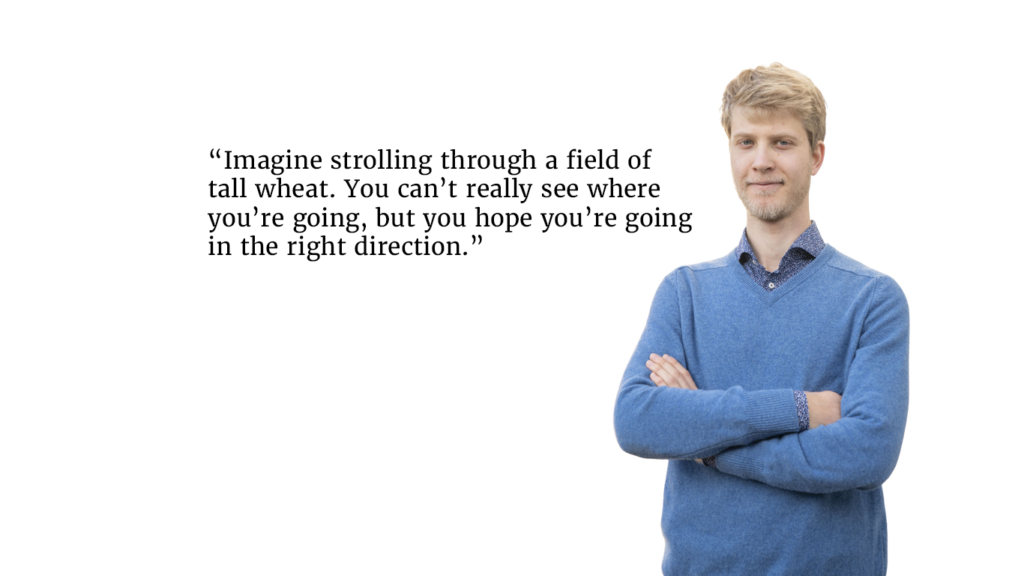Summer is around the corner. With the warm weather, comes the inevitable question: ”What’s next?”. But don’t worry if you don’t have an answer, it’s totally okay to not have everything figured out, says Ondrej Gomola.
Now’s the time of the year with deadlines breathing down your neck—and it’s a nasty kind of breath (they should really brush their teeth). From thesis hand-in to the dreaded end-of-year exam, it’s a time synonymous with anxiety, trepidation—and later, possibly, hopefully, relief.
What doesn’t help, especially towards graduation, is people asking you “What’s next?” You likely ask yourself the same question.
“What are you going to do? What’s the plan?” There’s a problem with these types of questions. A fatal flaw. People asking them inherently assume that you should have everything figured out, and imply that no plan is basically equivalent to failure. It’s not so hard to imagine the follow-up: “what do you mean you don’t know what you’re going to do?”
Some people may look as though they have dotted the i’s and crossed the t’s. But it is absolutely okay, absolutely fine to not have things figured out. Hell, it’s bloody normal.
It is difficult to navigate the trepidatious landscape of the future. We all have ideas of where we might want to be or what we want to do in a [insert unit of time]. But none of us (apart from Saruman, perhaps) have a crystal ball poised to divulge tomorrow’s events.
My belief is that, in the end, all these decisions about our lives are down to us, and that’s, well… terrifying. But I insist: that’s okay. Some would call this viewpoint existentialism, the crushing liberty of being responsible for one’s choices.
All this responsibility does is put us under much undue pressure, you might argue—and you would be partially correct. However, a bit of good stress pushes us in the right direction, compels us to do something. A world with no pressure would be monotonous, dull and devoid of incentives to develop ourselves or society.
Choosing a path is not some irreversible cliff-edge dive—instead, imagine strolling through a field of tall wheat. You can’t really see where you’re going, but you hope you’re going in the right direction. What helps here, in this metaphorical wheat field, is patience. Sticking to your chosen path, even though you feel—and probably are—lost. If you’re unhappy or unsatisfied with the results, at some point, you might want to go back to the drawing board—and that’s okay. A change of career, doing something different, remains a possibility.
If all else fails, you could make flour from the wheat around you and bake bread. Tell me, who doesn’t like freshly baked scones?









